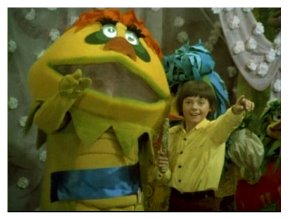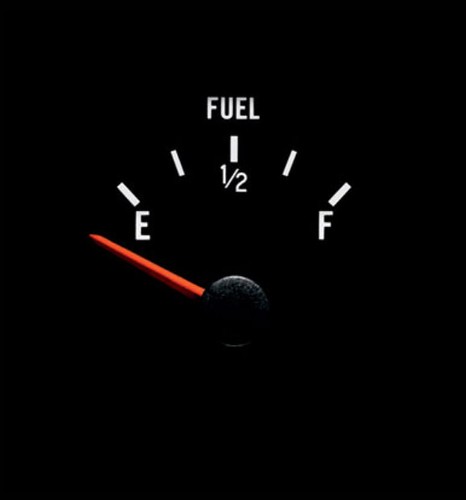Poem: Sunrise Over Worcester
5 Questions About: Jason Pinter
12 Signs That You Might Be A Banker
The 9 Worst Movies to Win Oscars
Book Review: Narrow Miss for "Above the Law"
5 Questions About: Screaming Blue Messiahs
What's Up With All the Fat, Naked Guys?
Thoughts from the Shadows: The Craziness of Publis...
How to Make a Damn Good Horror Movie
Literary Criticism
Fantastically Bad Cinema
Essays
Under God's Right Arm
June 2006
July 2006
August 2006
September 2006
October 2006
November 2006
December 2006
January 2007
February 2007
March 2007
April 2007
May 2007
June 2007
July 2007
August 2007
September 2007
October 2007
November 2007
December 2007
January 2008
February 2008
March 2008
April 2008
May 2008
June 2008
July 2008
August 2008
September 2008
October 2008
November 2008
December 2008
January 2009
February 2009
March 2009
Alcoholic Poet
Baby Got Books
Beaman's World
BiblioAddict
Biblio Brat
Bill Crider's Pop Cultural Magazine
The Bleeding Tree
Blog Cabins: Movie Reviews
A Book Blogger's Diary
BookClover
Bookgasm
Bookgirl's Nightstand
Books I Done Read
Book Stack
The Book Trib
Cold Hard Football Facts
Creator of Circumstance
D-Movie Critic
The Dark Phantom Review
The Dark Sublime
Darque Reviews
Dave's Movie Reviews
Dane of War
David H. Schleicher
Devourer of Books
A Dribble of Ink
The Drunken Severed Head
Editorial Ass
Emerging Emma
Enter the Octopus
Fatally Yours
Flickhead
The Genre Files
The Gravel Pit
Gravetapping
Hello! Yoshi
HighTalk
Highway 62
The Horrors Of It All
In No Particular Order
It's A Blog Eat Blog World
Killer Kittens From Beyond the Grave
The Lair of the Evil DM
Loose Leafs From a Commonplace
Lost in the Frame
Little Black Duck
Madam Miaow Says
McSweeney's
Metaxucafe
Mike Snider on Poetry
The Millions
Moon in the Gutter
New Movie Cynics Reviews
Naked Without Books
A Newbie's Guide to Publishing
New & Improved Ed Gorman
9 to 5 Poet
No Smoking in the Skull Cave
Orpheus Sings the Guitar Electric
Polly Frost's Blog
Pop Sensation
Raincoaster
R.A. Salvatore
Reading is My Superpower
Richard Gibson
SciFi Chick
She Is Too Fond Of Books
The Short Review
Small Crimes
So Many Books
The Soulless Machine Review
Sunset Gun
That Shakesperherian Rag
Thorne's World
The Toasted Scrimitar
This Distracted Globe
Tomb It May Concern
2 Blowhards
Under God's Right Arm
A Variety of Words
The Vault of Horrr
Ward 6
When the Dead Walk the Earth
The World in the Satin Bag
Zoe's Fantasy
Zombo's Closet of Horror
Bookaholic Blogring
Power By Ringsurf
The Hardee’s Six Dollar Burger
While the world – from Haiti to Africa – was rocked by food riots last month, U.S. consumers can still waddle into a Hardees or Carl Jr. fast food restaurant and order a Monster Thickburger – a half a pound of beef, cheese, bacon, pickles, and catsup for six bucks. The Monster Thickburger tips the scales at more than 1,200 calories and contains 72 grams of fat (more than 110 percent of the recommended daily amount of fat). Probably enough food to feed a
Rambo on a
Sylvester Stallone is back for a fourth “Rambo” movie. The movies comes on the heels of Stallone filming a 6th edition of the “Rocky” franchise. What’s next the second installment of “Stop! Or My Mom Will Shoot”?
Bling H20
Twenty-seven percent of people living in developing countries do not have access to potable water – so let’s talk about Bling H20, one of the most expensive bottled waters in the world. A 750 ml bottle of Bling costs between 40 and 60 bucks and has been a favorite among
Grand Theft Auto IV
Video gamers love this GTA 4 for its realism and action. Yet only a few courageous people have the nerve to condemn a game that has players pretending to be a sociopathic killer who murders innocent bystanders, slaughters drug dealers, shoots police officers, and rapes, tortures, and murders prostitutes. Most reviewers are as cowardly as Michael Malone on ABC News who admits that the game is horribly violent, but comes up with these nuggets:
“My younger son Tim ordered it with his own money, so it is officially his (yeah, parents, go ahead and try to ban it -- your kids have probably already seen the entire game, without you knowing it, via YouTube screen grabs).”
“Tim has already managed on two separate days to get himself into that bloody-eyed, stiff-legged zombie state that comes from staring at a TV screen too long with an Xbox 360 controller in your hand. I've already taken the game away from him twice -- that's in two days, mind you -- and made him do his homework, eat, sleep, breathe, etc.”
Pathetic how Malone rationalizes his poor parenting by claiming that no parents will be able to keep their children from X-rated video games. With logic like that why prevent children from pornography, cigarettes, and illegal drugs? Because, you know, they’ll get it at school anyway. Clearly, parents like Malone need a visit from the Department of Social Services.
The National Debt
As of last week, the national debt was $9,361,455,462,861.20 (that’s $9 trillion dollars). The average citizen’s share of this debt is about $30,800. On top of this,
Four Dollars for a Gallon of Gas
Do we really need to say more? It’s gotten so bad that the Associated Press is reporting that more people are running out of gas on the highways because they can no longer afford to fill up their vehicles. Instead people are putting in a quarter or half a tank and trying to make the gas stretch. Hard to do when nearly a third of the cars on the highway are trucks and SUVs.
Teenagers Can’t and Don’t Read
Reading aptitude among high school students continues to plummet – despite all the crowing about how technology is helping education. Less than one-third of 13-year-olds are daily readers – a 14 percent decline from 20 years ago, according to the National Endowment for the Arts. This, of course, is wreaking havoc for business owners. Nearly two-thirds of employers rank reading comprehension as “very important” for high school graduates, but only 38 percent of businesses consider high school students deficient in this skill. We continue to fall behind in reading – as a result
Perez Hilton
The celebrity gossip blog rakes in about $500,000 to $800,000 a year. Is that where we’ve come as a society? A guy who writes about celebrity drug busts and hook-ups is a millionaire?
Read our essay on being addicted to convenience
The Boys at Murphy's Taproom Figure out Why Broads Dig Jane AustenUnintentionally Gay Moments in Cinema
Labels: Culture, Education, Parody, Politics
 StumbleUpon |
StumbleUpon |
 del.icio.us |
del.icio.us |
 Technorati |
Technorati |
The True Story of How H.R. Pufnstuf Destroyed a Boy's Life
By Rev. Colson Crosslick
Stevie Shetkan is a member of my congregation at the Pretty Good Shepherd Church in Ripsaw, Arkansas. He’s a reformed heroin addict and male prostitute (who admittedly has nice thighs) who used to do anything – and I mean anything – to score his next fix.
When Stevie let the shining golden light lasers of Jesus into his life – his life turned around. He’s now a successful day laborer living in a boarding house and earning just enough money to squeeze by while paying his ex-wife alimony and child support. His life wasn’t always this good.
Stevie used to live in an expensive hotel in downtown
How did St evie Shetkan become a drug-addled vamp?
evie Shetkan become a drug-addled vamp?
The answer will amaze your Christian sensibilities – the TV show “H.R. Pufnstuf.” The younger folks among you might not remember this staple of Saturday mornings. Supposedly it was a live-action puppet show full of fun and innocent silliness. The plot revolved around a young boy and his magic flute being transformed to another realm lead by a friendly dragon named H.R. Pufnstuf.
But in reality “H.R. Pufnstuf” was a subversive counterculture TV show that lured innocent children into the drug culture of the 1970s and 1980s. The program, as you’ll see, urged children to smoke marijuana and try acid – two dangerous illegal narcotics that lead children to cocaine and heroin addiction as well as to experimentation with the dark pleasures of homosexuality.
The show is almost as bad as the “Curious George” books – one of the most anti-Christian children’s series in world history. It was also the grandfather of other modern shows allegedly for children, but actually subversive liberal brainwashing programs (“Barney” and “The Teletubbies,” for example).
The “H.R. Pufnstuf” program was the creation of two evil men – Sid and Marty Krofft (who have a mysterious Jewish sounding name – not that I have anything against Hebrews other than they scorn the Lord Christ Jesus). The Kroffts are responsible for many children’s TV shows such as “Land of the Lost,” “Sigmund and the Sea Monsters,” and “The Bugaloos.”
But “H.R. Pufnstuf” was their shining tribute to illegal drugs. How do I know this? Because, my friends, the evidence can be found on the Internet. “Like many good things from that era, H.R. Pufnstuf was full of nods to the prevailing stoner counter-culture, and included many sly pot and drug references,” according to the Web site of Cannabis Culture Magazine (a left-wing liberal pro-drug rag).
The loony liberal magazine goes on to say:
“Although the marijuana and drug references are sometimes subtle, they are laced throughout the entire series. Some highlights include Witchiepoo offering a minion a "roach beef sandwich," Freddy the Flute getting turned into a magic mushroom, Pufnstuf telling Cling and Clang to "stop sniffing" the magic smoke, and Jimmy dosing Witchiepoo with a Love Potion.”
Then there is the matter of H.R. Pufnstuf’s name – which is pronounced “Puffing Stuff.” He’s also a magic dragon in much the same way as “Puff the Magic Dragon,” a marijuana tribute song by Peter, Paul, and Mary.
Marty Krofft, in a moment of candor, has even admitted that H.R. Pufnstuf was an intentional marijuana reference. The sly evildoer! But all you have to do is watch the show. It’s obvious! Look at the trippy colors, the weird props, and the talking mushrooms practically begging children to fire up the water bong.
“Every episode is like an acid trip,” Stevie Shetkan told me. “After watching it, I wanted to smoke pot like you read about. And I didn’t even know what pot was!”
He soon found out from his older brother (who was also hypnotized by the uber-liberal show). First came the dope – then came the hard drugs – and then, of course, the sex with horny, well-toned men. These kinds of “children” shows should be banned – and we should be going at “Barney” and “Teletubbies” just hard!
Stop them before they turn your child into another Stevie Shetkan.
(The Rev. Colson Crosslick is pastor of the
Enter the intellectual Christian world of Rev. Colson Crosslick:
The Sin of Halloween
Comic Books and Satan
Dungeons & Dragons -- The Devil's Game
Labels: Culture, HR Pufnstuf, Parody, TV, Under God's Right Arm
 StumbleUpon |
StumbleUpon |
 del.icio.us |
del.icio.us |
 Technorati |
Technorati |
 My neighbor rarely ventures outside of her house. There really is no reason to. Her groceries – peanut butter, toilet paper, Oreos, et al – are delivered each week. Her dry cleaner provides door-to-door service. Landscapers roll up in pick-up trucks like clockwork every time her lawn needs to be mowed or raked. DVDs come in the mail – along with her books.
My neighbor rarely ventures outside of her house. There really is no reason to. Her groceries – peanut butter, toilet paper, Oreos, et al – are delivered each week. Her dry cleaner provides door-to-door service. Landscapers roll up in pick-up trucks like clockwork every time her lawn needs to be mowed or raked. DVDs come in the mail – along with her books.Pizza and Chinese food deliveries occur a few times a week. And, of course, she has Internet access and cable TV.
Her house is beginning to look a lot like a cocoon.
It’s time to admit that as Americans we’re addicted to shortcuts. We want things to be fast, easy, and cheap. And that spells: convenience. Americans aren’t lazy. Our work productivity is the highest in the world. We work longer hours and take less vacation than other developed nations. But we’re obsessed with saving time (what we’re saving it for is unclear).
Take these rather alarming statistics pointing to our addiction to convenience:
- The staggering increase in the popularity of disposal cameras – even disposable digital cameras. Analyst firm IDC said disposal camera sales reached a high of 460 million units in 2004.
- About 30 percent of all households across the United States (about 34 million homes) use landscaping companies to maintain their lawns and yards. Consumers in the U.S. spent more than $44.7 billion on landscaping, according to the National Gardening Association. The growth of landscaping services increases about 10 percent each year.
- The market for grocery delivery is expected to reach a high of $7.5 billion in 2008. The average time it takes to order groceries is about 10 minutes, according to a report in the Canadian Press. Why go to the supermarket?
- 2007 marked the sixth consecutive year that online sales increased at a double-digit rate. Last year, online sales hit an all-time high of about $62.7 billion.
- Going out to eat – even at fast food and casual restaurants is declining in favor of “prepared foods” consumers can buy at supermarkets (or have delivered by supermarkets) and pop into the microwave oven at home, according to a study by Technomic.
Americans view these everyday tasks as chores – unnecessary inconveniences and time wasters better delegated to another. But it’s a mistake to think of these things as chores – they’re responsibilities. They’re the cost of self-sufficiency (and, quite frankly, help build character). Isn’t the child who does their own homework better off than the child who pays someone else to do it?
There is, of course, an enormous price for all of this convenience: pollution, climate change, and energy consumption. But the high social and cultural costs may be the most damaging. All this convenience – and buck passing – is isolating individuals and eroding the social fabric of our neighborhoods and communities.
This disconnect may be this is why Americans continue to believe our society is at its most dangerous point in history despite a long-time trend in declining violent crime rates (the homicide rate in 2005, for example, was at its lowest point since 1965. But good lucking trying to convince people of that).
My parents knew all of their neighbors intimately. The women all stayed home with their children – set up play dates, babysat for each other, visited each other for lunch and tea. My father knew the men because every weekend they were outside cutting their lawns, trimming their hedges, painting their houses and garages, washing their cars, and performing other regular maintenance on their homes. They took breaks together, borrowed tools from each other, and shared beers at the end of the day.
That forged friendships which lead to family barbeques, joint vacations, dinner and movie dates, dinner parties, etc. When I was growing up, I was intimate with the insides of every neighbor’s house, played with their children, knew their relatives, and thought of neighbors as surrogate parents.
Now as an adult, I’ve never been inside any of my neighbors’ houses, except for one. Only four people out of 10 houses on my section of street even cut their own lawns (and this includes a 75-year-old widow).
Our thirst for convenience undermines our communities. Ordering DVDs over the Internet has closed down one of the two video stores in town. Amazon.com and other online book retailers shuttered the two bookstores many years ago. Home theater will eventually eradicate movie houses. Can gourmet “prepared meals” soon replace restaurants?
We even let convenience erode services we used to get for free. That’s why we now pump our own gas and why we’re starting to check-out and bag our own groceries at the supermarket. Because doing it alone is faster.
Convenience has become an addiction. One all responsible adults should try and break. Mow your own lawn. Rake rather than use a gas-powered blower. Paint your house. Go food shopping. These tasks? These chores?
It’s called life.
The long and painful suicide of newspapers
Why all U.S. employees -- from lawyers to construction workers -- need a bill of rights
Labels: Convenience, Culture, Essay, Society
 StumbleUpon |
StumbleUpon |
 del.icio.us |
del.icio.us |
 Technorati |
Technorati |

This work is licensed under a Creative Commons Attribution-No Derivative Works 3.0 License.
The Template is generated via PsycHo and is Licensed.







